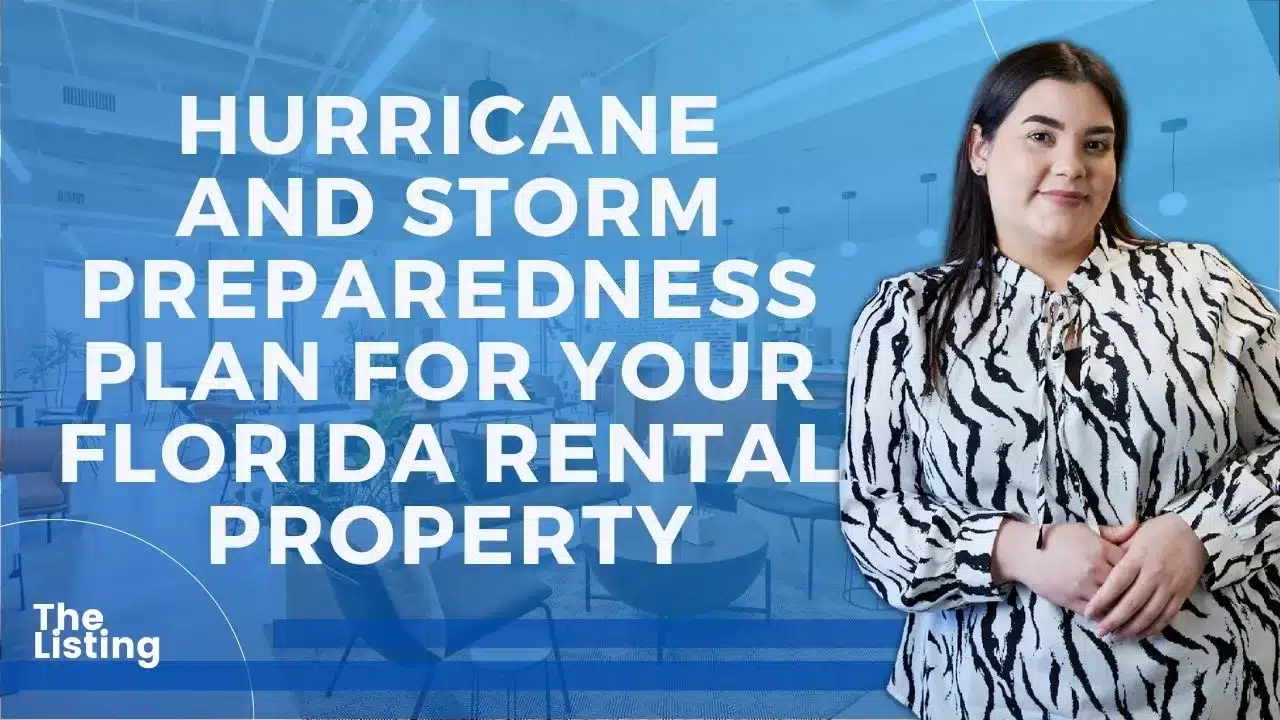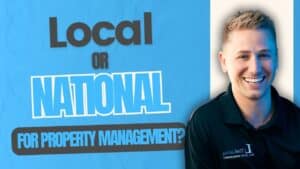If you are a rental property owner or tenant living in Florida, hurricanes may be a concern or a threat to your property, depending on where it is located. Hurricane season runs from June to November, bringing the possibility of strong and potentially damaging winds and storm surges to the hurricane-prone East and Gulf Coasts.
As a professional Property Management Company in Orlando, Florida, we have years of experience protecting and managing rental homes during the hurricane season, and we’ve been through numerous hurricanes here in the state of Florida.
So, if you live or own a rental property in Florida, it’s critical that you have a smart, effective hurricane plan in place to help keep your home, tenants, and loved ones safe. This hurricane guide contains valuable planning and preparation information for rental property owners and tenants. Please use this as a resource to help keep your family and property safe before, during, and after a storm.
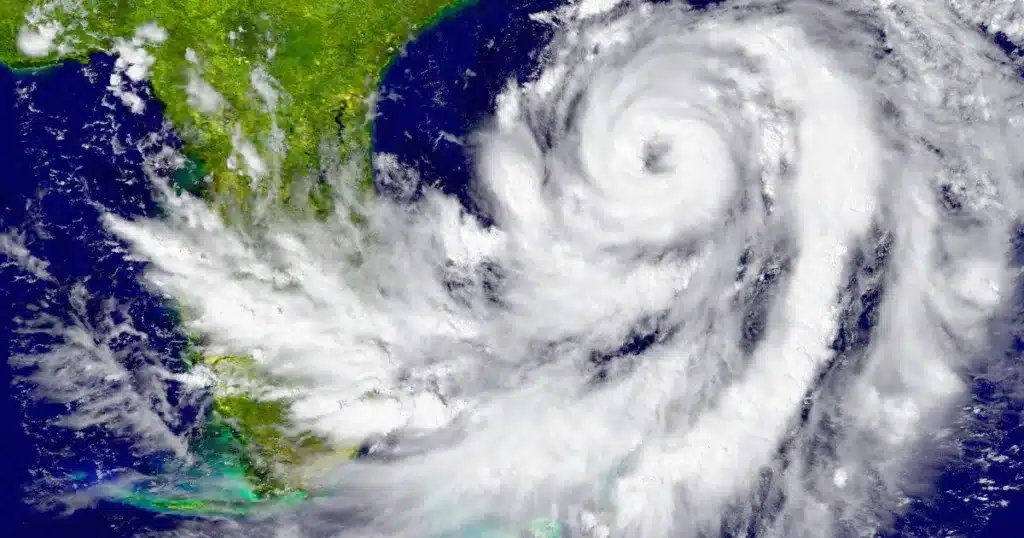
Hurricane Watch vs. Hurricane Warning
Hurricane Watch:
A hurricane watch is an announcement that hurricane conditions are possible in your area. Watches are issued 48 hours in advance of the anticipated onset of hurricane-force winds.
During a hurricane watch, take action. Begin or continue storm preparation activities and listen for updates from local officials.
When a Hurricane Watch is Issued (48 hours prior to landfall):
- Clean, sterilize and fill available containers with water for emergency drinking purposes.
- Photograph and/or videotape your property and contents (with date stamps) as baseline documentation. Store images to cloud and/or print and store in waterproof containers.
- Pack freezer contents tightly to conserve cold temperatures in case you lose power.
- Gather the following and secure in luggage or waterproof containers:
- Reading materials, toys and games for family members.
- Toiletries and equipment for family members.
- Several changes of clothing.
- Blankets and pillows for each family member.
- Pet food, water, carriers and leashes.
- Ensure pets wear ID tags with your name/phone number.
Hurricane Warning:
A hurricane warning is an announcement that hurricane conditions are expected in your area. Warnings are issued 36 hours in advance of anticipated onset of hurricane-force winds. During a hurricane warning, complete storm preparation activities and evacuate if required by local officials.
When a Hurricane Warning Is Issued (36 hours prior to landfall):
- Get cash.
- Fill cars with gas.
- Charge cell phones.
- Back up computer files.
- Install hurricane shutters and/or board up windows.
- Store or secure outdoor furniture.
- Prepare your pool and spa.
- Secure your boat.
- Fill bathtub with water to bathe and flush toilet.
- Turn off breakers or unplug electronics to prevent damage from electrical surges.
What to Do as a Rental Property Owner?
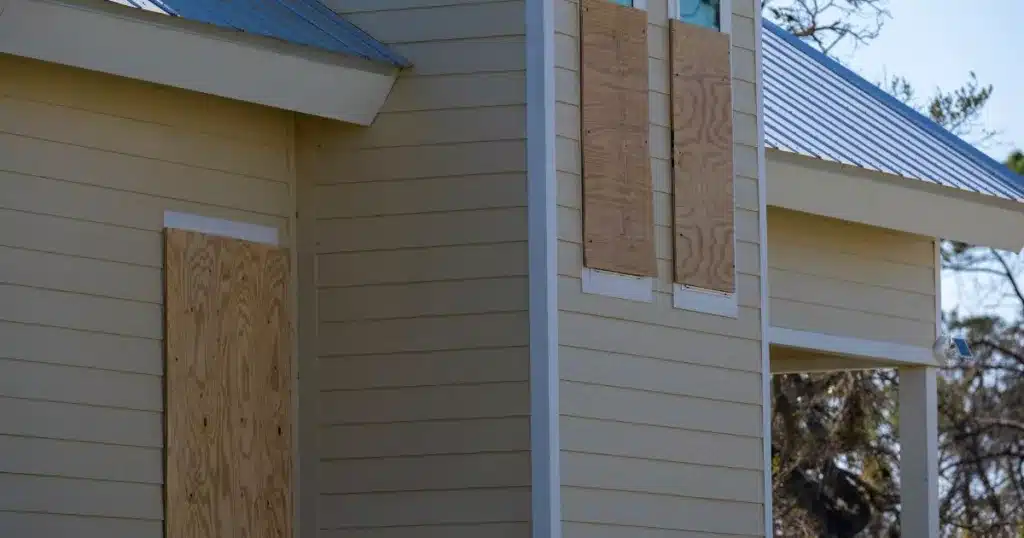
As a property owner, it’s crucial to develop a plan of action to protect your property and to ensure your tenants’ safety. Being the property owner, it is your responsibility to communicate with your tenants, check on your property, and locate/protect all necessary documents. Here are some helpful tips for hurricane preparation for property owners:
Communicate With Your Tenants:
If your property has current tenants, it is important to stay in communication with them. As the property owner, you should stay informed about the course of the hurricane, weather alerts, and local evacuation orders. Depending on where your property is, it may be in danger of flooding from local waterways.
- Be sure to clearly state what responsibilities you expect from your tenants. Communicate with your tenants regarding anything you need them to do; remove patio furniture, lower air conditioning temperature, etc.
- If your tenants are new to the area, it may be their first hurricane preparation. Help guide them through the process to ensure their safety and your property’s safety as well.
Create a Hurricane Preparedness Plan:
Being that Florida is prone to hurricanes, it is essential to create and update your hurricane preparedness plan. This plan will be an important resource to share with your tenants that outlines what steps they should take to prepare for a hurricane. This plan should include:
- Evacuation information: Inform your tenants of which evacuation zone your property is located in. In addition, include information about evacuation routes and shelters in the area. Inform your tenants of any specific procedures your area has to follow.
- Emergency contacts: Share contact information for local emergency lines such as the State Assistance Information Line (SAIL). The SAIL line is open strictly during emergency events, such as a hurricane. The SAIL hotline will provide information such as how to prepare for a hurricane, what to do during, and information regarding shelters and pet shelters. In addition, encourage your tenants to establish emergency contacts within their friends and family. An emergency contact should include someone out of state to remain in contact with throughout the duration of the hurricane.
Secure Your Rental Property:
With strong winds, surges, and flooding, any property not secured has a high chance of being damaged. It is essential to move any loose outdoor furniture. Loose items can be picked up by the wind, displacing them or causing damage to your home or surrounding areas. In Florida, it is typical and suggested to board up windows and/or sliding glass doors before a hurricane. This minimizes the chances of shattered windows and prevents damage.
What to Do as a Tenant in Florida?
As a tenant living in a rental home, condo, apartment, or townhome, it is important to stay informed and in communication with your landlord or apartment manager. Where your home is located and the type of home you live in will impact the precautions you must take to prepare for a hurricane.
Listen to your Property Managers, Local Officials or your Landlord:
Although your landlord or apartment property manager should communicate with you before a hurricane, it is also your responsibility to stay informed and listen to your local officials to gather information. Do not rely solely on the communication of your landlord or apartment manager. Tune into local news or radio stations to learn about the path and severity of the hurricane in your area.
Evacuation:
It is important to know what evacuation zone you reside in. Your county will most likely issue evacuation orders for multiple zones at once. If your area is in an evacuation zone it is ESSENTIAL THAT YOU EVACUATE. An evacuation is issued for a reason. If you do not evacuate and you end up in danger, it may be difficult for authorities to rescue you. This puts yourself and first responders in a life-risking situation that can be avoided by evacuating when told to do so.
When Evacuating:
- Only take what you really need, such as your cell phone, medications, identification (driver’s license or passport), clothing, food, water, toiletries and cash.
- Before you leave, unplug electrical appliances and turn off your home’s gas, electricity and water.
- Travel roads and highways recommended by emergency workers, even with traffic, because other.
- Do not leave pets behind. Find pet-friendly accommodation and bring them with you.
Where to Evacuate to:
- It is recommended that you stay with family or friends who reside in an area that is not predicted to be impacted by the hurricane. It is encouraged to stay within your county or as close to home as possible.
- If you are planning to travel to a hotel/motel, be sure to book your room prior to arriving. In the event of a major evacuation, hotels may fill quickly. You do not want to be stuck without a hotel or place to stay once you arrive at your destination.
- If staying with family or friends or in a hotel is not possible, shelters will be open and available for anyone who needs a place to stay. Local shelter information can be found online or by calling your County’s Office Emergency Management number.
What to Bring to a shelter
You will need at least two weeks supply of the following:
- First Aid Kit.
- Prescription medications.
- Toiletries.
- Battery Operated Radio.
- One flashlight per person with extra batteries.
- Blankets, sleeping bags, and pillows.
- Identification and valuable papers.
- Entertainment: Cards, games, books, magazines.
If You Are Remain at Home
In some cases, you may choose to stay at home. If you choose to do so, be sure to take proper precautions to protect yourself and others.
- Be sure your entire family stays in your safe room.
- Monitor hurricane updates via radio, TV and internet.
- Even if storm conditions subside, stay indoors until you receive official word that the hurricane is over.
- In many cases, conditions worsen again after periods of calm.
- Keep curtains and blinds closed and stay away from windows to avoid injuries from broken windows or flying glass or debris.
- Turn off utilities if instructed to do so. Otherwise, turn the refrigerator thermostat to its coldest setting and keep doors closed to retain cold air.
- Avoid using your telephone, except for emergencies. When you do leave your home, use the stairs, not elevators.
Property Management Hurricane Preparation:
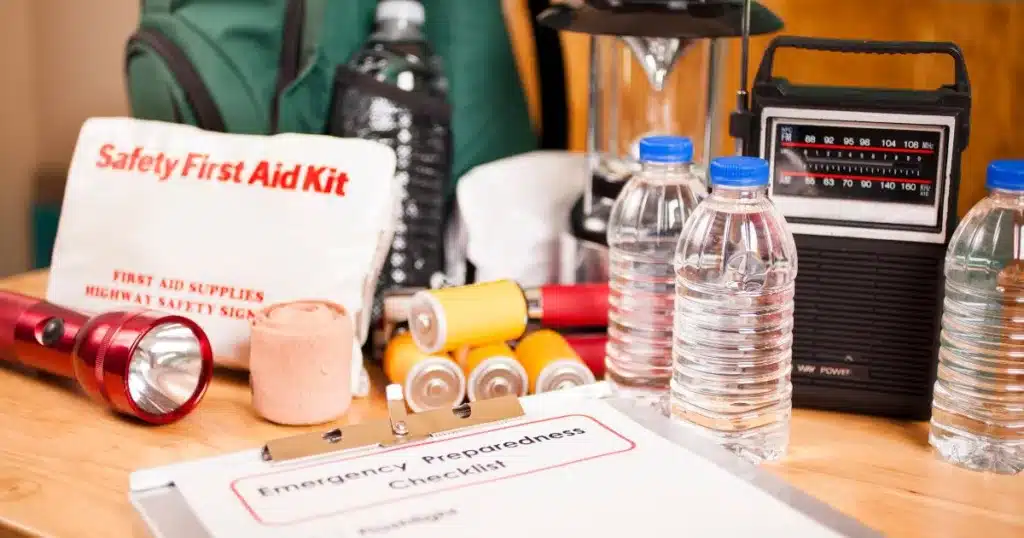
When a Storm is Headed Your Way
It is impossible to predict how long it will take to return back to a normal state after a hurricane, therefore it is essential to prepare a hurricane checklist. It is important to plan ahead in case of an emergency. Gather items such as:
- At least one gallon of drinking water per person, per day.
- Chlorine to decontaminate water.
- Non-perishable packaged or canned foods, juices and snack foods.
- Manual can opener.
- Paper plates and plastic utensils.
- Garbage bags.
- First-aid kit.
- Flashlights and batteries.
- Candles and lighters or matches.
- Battery-powered radio, TV, lantern, hot plate and fans.
- Solar-powered cell phone charger.
- Gas for barbecue.
- Rain gear.
- Medicines/prescriptions — Renew and store in a waterproof container.
- Baby wipes and hand sanitizer.
- Insurance documents in a waterproof container.
What Should Property Owners Do Once The Hurricane is Over?
Once a hurricane is over and it is safe, a property owner should communicate with their tenants and assess the damage on their property. If there is damage on the property:
- Place tarps over damaged roofs, windows and doors and remove debris to reduce the threat of injuries and further damage.
- Be aware of hidden dangers like downed power lines and water-covered holes.
- Run generators only in well-ventilated outdoor areas (never indoors) to prevent carbon monoxide poisoning.
- Discard all food that may no longer be safe, especially if your home lost power. When in doubt, throw it out.
- Photograph or video all damages to document necessary repairs or replacement. Do not accept any money offered by insurance companies to release or settle claims.
- Immediately contact your insurance agent to report all damages — the first to report is usually the first paid!
Addressing damage right away (when safe) is crucial. Damage can be a safety hazard so be sure to work with a professional if necessary and take extreme caution. By actively following these steps, property owners can navigate post-hurricane assessment and ensure all damage is accounted for.
Our Property Management Summary
As experienced Tampa and Orlando property managers, we know that a hurricane preparedness plan is an absolute necessity for both property owners and tenants in hurricane-prone states like Florida. The dangerous and possibly life-threatening weather brought on by these storms makes proactive measures and staying informed essential. By understanding the danger of hurricanes and how important it is to be prepared, Florida residents and homeowners can take appropriate actions at the right time, minimizing risks and ensuring safety.
Property owners have an important responsibility in ensuring their rental properties are secured and tenants are informed of their expected responsibilities. Effective communication, hurricane plans, and post-hurricane assessment are necessary aspects of owning a rental property in a hurricane-prone area. For tenants, taking on the responsibility of staying informed and listening to evacuation protocols can make a critical difference during these emergencies. Hurricanes can be scary and stressful, but by following our expert guidelines and planning ahead, you can stay ahead and be prepared for what’s to come. Stay safe during this hurricane season!
Copyright © 2017-2023, The Listing Real Estate Management. All Rights Reserved.

